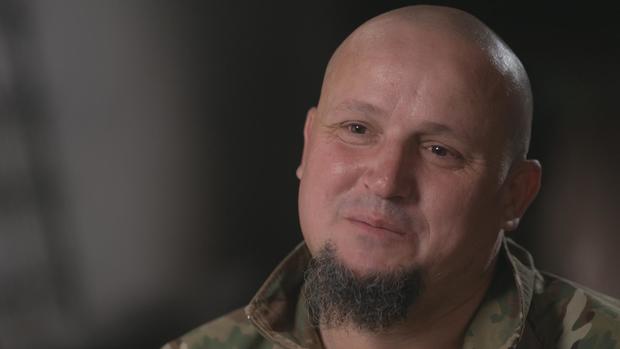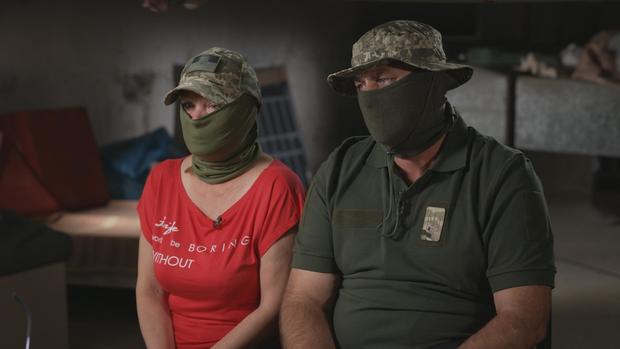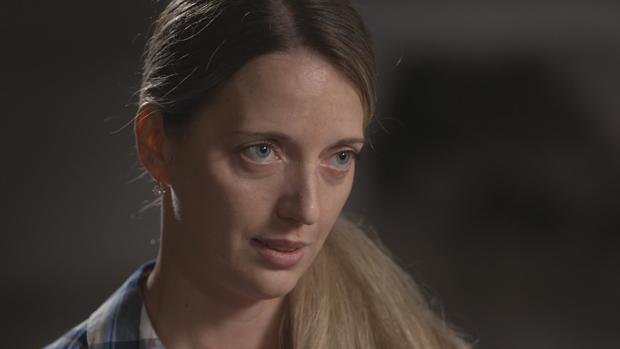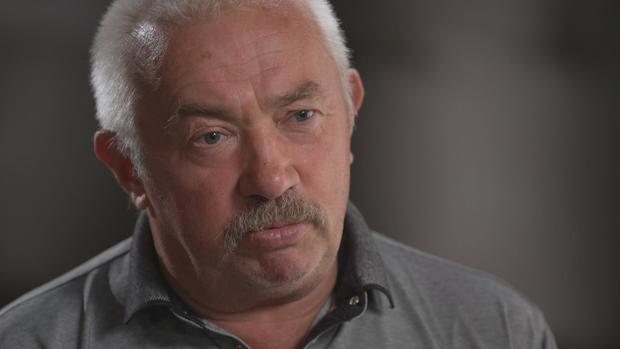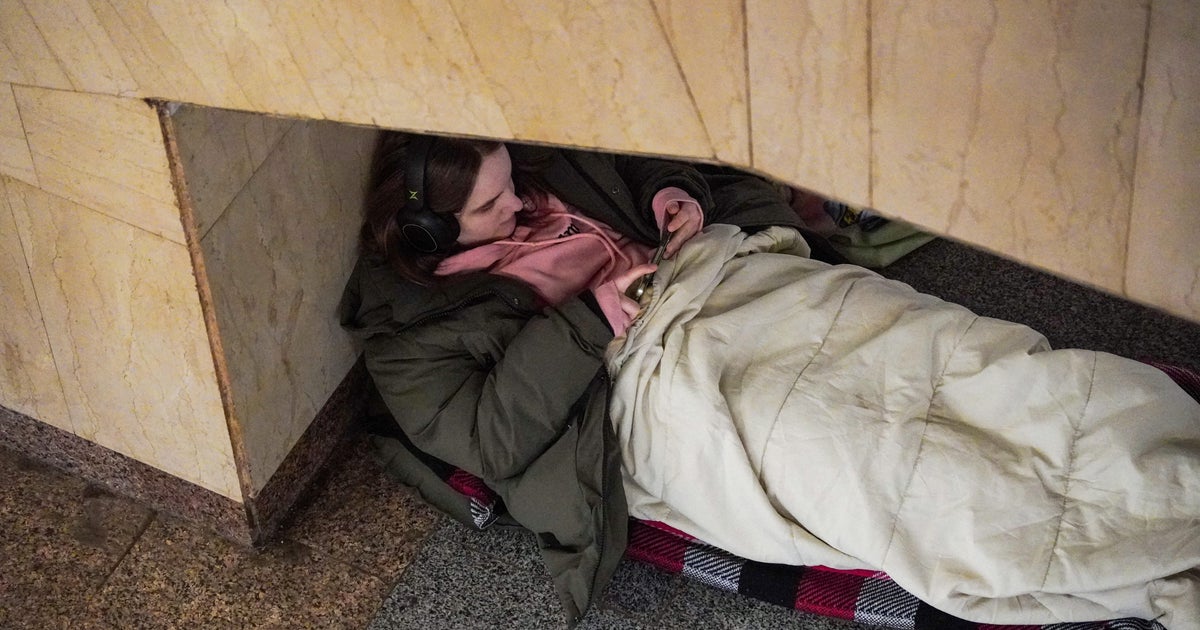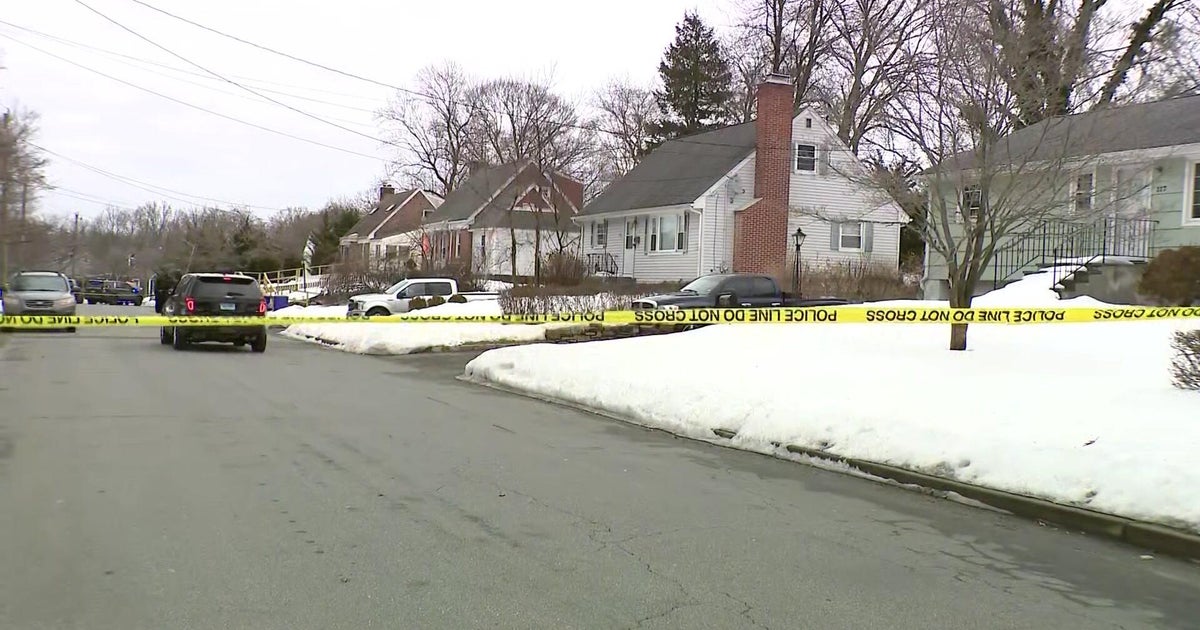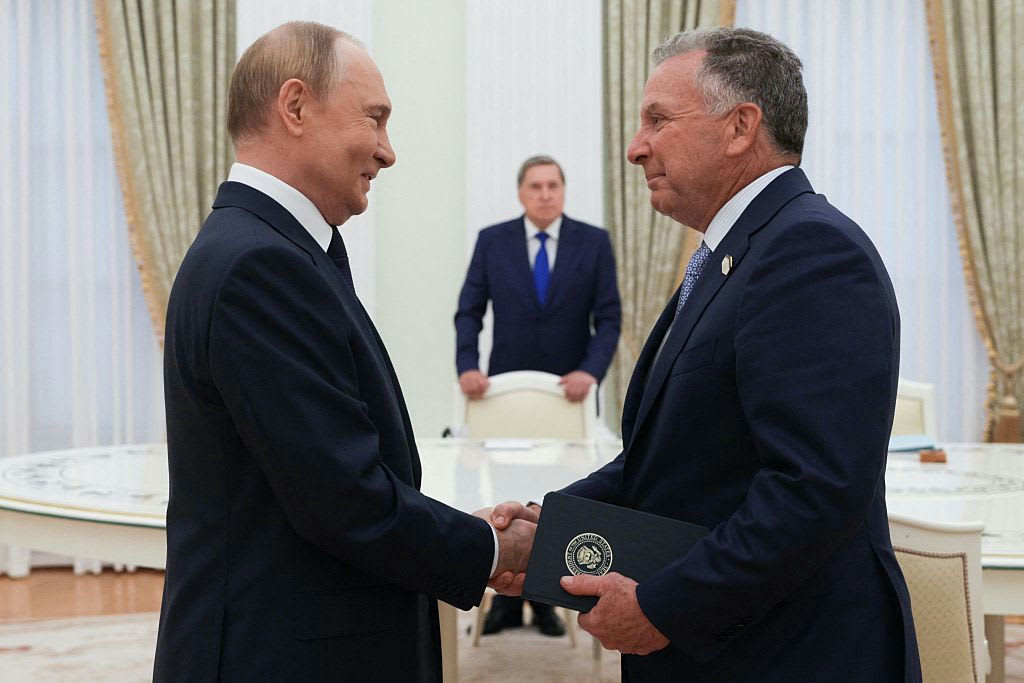Ukrainians defend Kherson, target Russians after forming group of civilian resistance fighters
Tonight, 35 million victims of Russian aggression have a new reason to worry. This past Wednesday, the U.S. Senate defeated billions in aid for Ukraine. The bill included relief for Israel and the U.S./Mexico border. But Republicans wanted more on immigration. The Senate is likely to try again. The White House says Ukraine support will run out in weeks. Ukraine has asked the West for a lot of money but not a drop of blood. Its people are doing the fighting-even civilians who chose not to flee but stay behind Russian lines and join the resistance. They include a wedding planner, an office worker and retirees who pledged "their lives, their fortunes and their sacred honor" to defend the free world from tyranny.
They were typical civilians—a wedding planner, business owners and retirees. But after Russia's unprovoked invasion, they chose to fight. Not unlike Americans after Lexington and Concord, they joined the resistance and pledged "their lives, their fortunes and their sacred honor" to defend the free world from tyranny.
In February 2022, nearly 200,000 Russians invaded, and Ukrainian civilians heard the call to arms. Olha Hrynchenko went straight to enlist in the army.
Olha Hrynchenko (translated): They didn't want me because I am a woman. But I insisted and convinced them I could help.
The wedding planner, Vitalii, organized his civilian friends to fight.
Vitalii (translated): We jammed two cars [full of] weapons, and we went to defend our city.
And 62-year-old Borys Silenkov came out of retirement to defend his country.
Borys Silenkov (translated): I told myself, "No. I won't flee. This is my land. This is my region."
Their region is Kherson, a southern province with a capital of the same name on the Dnipro River. On March 2, 2022, Russia's surprise attack overwhelmed the city. The government of Kherson surrendered, but the people rebelled.
Armed with flags, civilians confronted Russian teargas and bullets.
In secret camps, volunteers organized an underground force to harass the invaders, while others gathered windowsill intelligence to upload to the Ukrainian military.
To hear the story of how Kherson rose up, we had to head down. The Russians were one mile from here, firing artillery. So, we assembled a studio in a bunker. Here, we met Vitalii, who asked to go by his first name. He recruited 10 friends, including a coffee shop owner and a farmer. Most had never loaded a gun. He told us:
Vitalii (translated): That was our team, different people, different in age and social status. Just like that, Ukrainians.
His team of civilians improvised this base near the river. They ran hit-and-run raids including, Vitalii says, an attack on a small Russian boat.
Vitalii (translated): We [killed] all of them on the boat. A major, a captain, two lieutenants, a senior sergeant, and a soldier.
Scott Pelley: Help an American audience understand why you feel so strongly about protecting this country and these people.
Vitalii (translated): [The Russians] came to our home. Someone at the top decided that they could come to your home, tell you how to live your life, rape your wife, kill your child, smash your fields with tanks, and lay mines. You are bloody savages. No more, no less. Why defend my people? I was brought up this way.
Borys Silenkov was also brought up that way. He's a retired politician and former governor of the province.
Borys Silenkov (translated): In my [country house], I had gasoline, and oil for my car, and so following a recipe we made Molotov cocktails in bottles.
He told us those cocktails went down the hatch of a Russian armored vehicle like this. This is Silenkov, who fought with a civilian team and ate food set out by villagers. He says that, one night, he was ambushed and shot.
Borys Silenkov (translated): I saw my leg and muscles were [torn] but not the bone. When I took the body armor off, my chest was covered in bruises as a result of two bullets that hit the body armor.
Silenkov told us he escaped and treated his leg.
Borys Silenkov (translated): I heated my knife, and with a stick between my teeth, I cut off all the muscles that were loose on my leg. I stitched the wound up as best I could [in the dark] with no anesthetic. I knew that if I surrendered, they would torture me to death.
Torture sets the price of freedom nearly beyond reach. Like Silenkov, this couple was burning armored vehicles and collecting weapons until they were betrayed by traitors collaborating with Russia.
Scott Pelley: After you were arrested, the Russians tried to get you to give up the names of other members of the resistance. And I wonder what the Russians did to you to try to get that information?
The pair asked not to be identified. You'll understand why.
Male survivor (translated): Shall we tell you everything?
He asked.
Scott Pelley: Yes.
What they have to tell about Russian torture is hard to bear, but it should be heard.
Female survivor (translated): They poured vodka down my throat. They said, "We'll pour a liter [of vodka] into you – and you will tell us everything."
Male survivor (translated): They burned her legs with boiling water…
Female survivor (translated): They put a gun to my eyes and said, "I'm going to shoot you!" I wanted him to shoot me, I wanted it to happen quickly, not to be tortured. I was only thinking about my children, so that [the Russians] don't get ahold of them. I only thought about my children.
He told us:
Male survivor (translated): They twisted my arms behind my back and started pushing them in opposite [directions] [almost] breaking them. Then, they let me go. And about thirty minutes later they took me upstairs again…
He told us the Russians tortured him with electric shock from an army field telephone like this. It has a crank that generates electricity.
Male survivor (translated): When they brought me in again, they took my trousers off. They attached the clips to my genitals and my lip and while they were setting up the wires, they were trying to take my tooth out with pliers. They would say to me, "Let's call Biden or Zelenskyy, you chose." Biden was when they attached the clips to my genitals and lip. And when they clipped to my ear and toe, that's when "we called Zelenskyy." That's how they joke when they torture people.
Scott Pelley: You did not give up the names. And I wonder why you chose to suffer so much?
Male survivor (translated): Because they're young guys, they have families, children. And I am Ukrainian… I just couldn't.
The Russians released them after finding no evidence. They had had their phones wiped clean, often, to leave no clues and no leads.
While many fought in the underground, 34-year-old Olha Hrynchenko and 66-year-old Kostiantyn Kozak volunteered for the army. They were among the 'overnight soldiers' who threw on uniforms too new for insignia, picked up weapons short of ammunition, and with no training faced elite Russian paratroopers. Olha told us...
Olha Hrynchenko (translated): When the [Russians] started shooting from heavy caliber weapons, it turned into a complete nightmare because there was lots of smoke, fire everywhere around.
Our interview with Olha was one of those that was interrupted by the distant rumble of a Russian shell exploding in the city.
Scott Pelley: Why were you there the day… There go the Russians again… When you hear explosions like that in the city, what do you think?
Olha Hrynchenko (translated): Nothing. We live one day at a time today. We don't have any plans for [the] future. We understand that we have to be strong and patient and live in this reality we have now. That's it.
Kostiantyn told us about Lilac Park in Kherson where the overnight soldiers tried to make a stand. He said...
Kostiantyn Kozak (translated): On video you can see people who died, and you can see them lying there, weapons next to them, a horrible situation because people were torn apart. The trees were torn apart…
Twenty eight volunteers were killed in the Lilac Park massacre. They never stood a chance. They knew that. But they were all that stood between the Russians and their families.
Citizens of Kherson who gave the "last full measure of their devotion" look to their city from a hill. The battle of Kherson would ultimately be their victory over the arrogance of the Kremlin.
Vladimir Putin said that Kherson would be Russian "forever." He did not know that the Ukrainian forces outside the city and the resistance fighting within would never let up. We don't know how many Ukrainians were killed but the fresh graves in this Kherson cemetery testify to the Russian occupation. It lasted about eight months until the Russians could no longer hang on.
A year ago, the Russians retreated across the river from Kherson city. But still, civilians continue to suffer under the Russian roulette of artillery rounds. And while we were there, a shell hit this building and riddled a city bus. Two passengers were wounded. A policeman was killed. Today, Russia still occupies nearly 20% of Ukraine — and so the resistance continues.
Of those we spoke to in the bunker, the man who suffered so much, has now joined the army. She is back in civilian life as is Olha Hrynchenko. Borys Silenkov tried to enlist but the army told him, at 62, he's too old. Vitalii is now in the special forces and had one last thing to say.
Vitalii (translated): When misfortune came, it was America that offered help to my country. The USA and Great Britain were the first countries who came and offered their shoulder, giving us a chance at the very start to take a deep breath in order to re-group. So, thank you, to all Americans from Ukraine.
Produced by Nicole Young. Associate producer, Kristin Steve. Broadcast associate, Michelle Karim. Edited by Warren Lustig.

